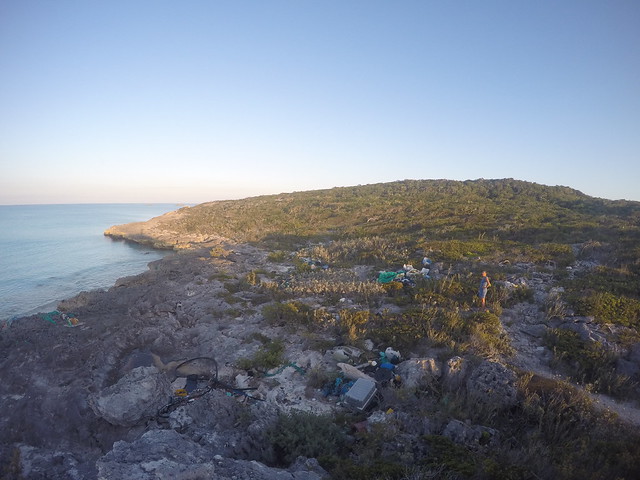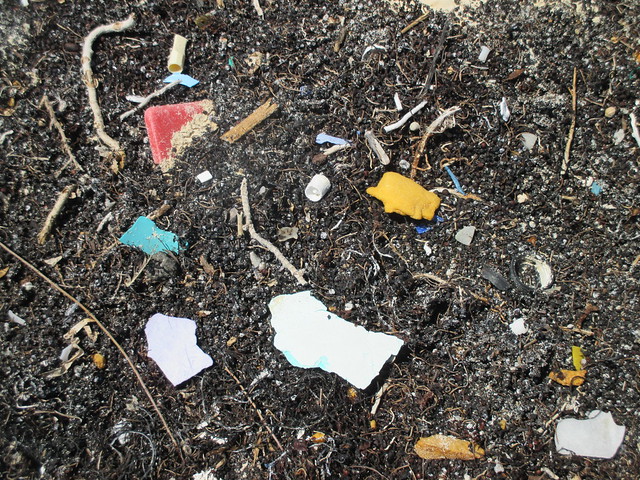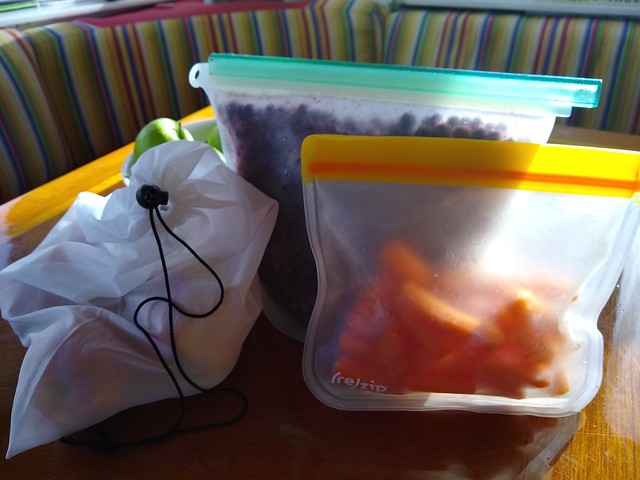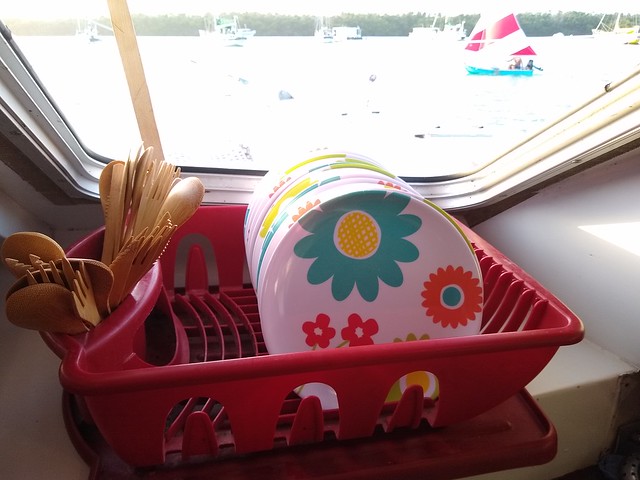Note: I’ve written about this before, but prompted by friends who are participating in Plastic Free February, I’m making some practical suggestions for reducing our use of plastic, especially the single-use variety.
Living on the ocean, we see firsthand the accumulation of plastic waste. Shorelines on windward sides of islands can be completely buried under a confetti of plastic bottles, toys, fishing gear, shoes, forks, packaging and other waste. We have always tried to do our part, but it is hard to live without compromise. So often, our choices are limited by what’s available, by our budget, and by the time and energy we possess to do things the old-fashioned way.
For example, when the kids were younger, I used to bake everything my family consumed from scratch, from wheat berries that I ground myself. They came in five-gallon pails that were re-purposed after they were empty. So we had bread without plastic packaging. But right now we’re on a demanding school-work-activity schedule with four teenagers and an 8-year-old on the boat, which is moored in the Florida Keys. I am unable to keep up with the consumption—teenage boys eat a lot and I am not home long enough between drop-offs and pick-ups to prepare everything from scratch. So store-bought bread in a plastic bag has replaced home-made bread. We used to be in a veggie co-op in the Tampa Bay area, where we got a box of produce each week. But now we live on an island where the choices are limited. Even though I bring my washable mesh bags to the store to buy produce, a lot of our food—even the organic varieties—is packed in plastic.
I taught my children never to walk by a piece of trash, but to pick it up and dispose of it properly, as part of a bigger philosophy: leave the world better than you found it. But what can we do when it accumulates faster than we can clean it up? How can we prevent its ending up in the environment in the first place?
We must be savvy about our storage and waste because we live on a boat, but a lot of our tips and tricks could be tried anywhere! Here are some ideas that we have implemented:
- We drink tea or fresh juices made in a washable pitcher instead of buying soft drinks. We never use straws. We carry our own water in stainless steel bottles. We vote with our dollars and send the message to bottlers that we are not interested in their products.
- We purchase a single, natural, multi-purpose cleaning product in a gallon-size container (ECO-Orange is a good one) and dilute it in our own re-usable spray bottles. I have even experimented with making my own laundry soap. Cleaners are often made mostly of water and use a lot of packaging, in addition to being toxic.
- We carry cloth bags to the store and use washable mesh bags for produce (Purifyou).
- We store food in washable silicone bags instead of single-use plastic bags (Rezip and Sungwoo).
- All our babies wore cloth diapers. Because I was a stay-at-home-mom, I had the time and energy to wash and hang them. I’ve used the Bummis and the Indisposables brands.
- We don’t use disposable razors.
- We wear sun-protective clothing instead of buying sunscreen.
- We don’t shop at dollar stores. Almost everything in there will end up in a landfill.
- We store food in washable glass jars (which can be vacuum-sealed with the Foodsaver jar attachment) and Pyrex Snap-ware containers.
- We use washable shop towels instead of paper towels as much as possible. That saves paper use as well as plastic packaging.
- We buy bulk when it’s available. I buy eggs in biodegradable packaging instead of in plastic.
- We take our own dishes and cutlery to picnics and potlucks.
- When our kids were little, they played with wooden blocks, trains, and dolls with magnetic clothes instead of plastic toys. We try to use things made from natural materials/renewable resources as much as possible.
- We make as much of our food from scratch as we can. Convenience foods=plastic packaging.
- As much as possible, we try to collect verbs instead of nouns—spending money to make memories instead of buying stuff.






